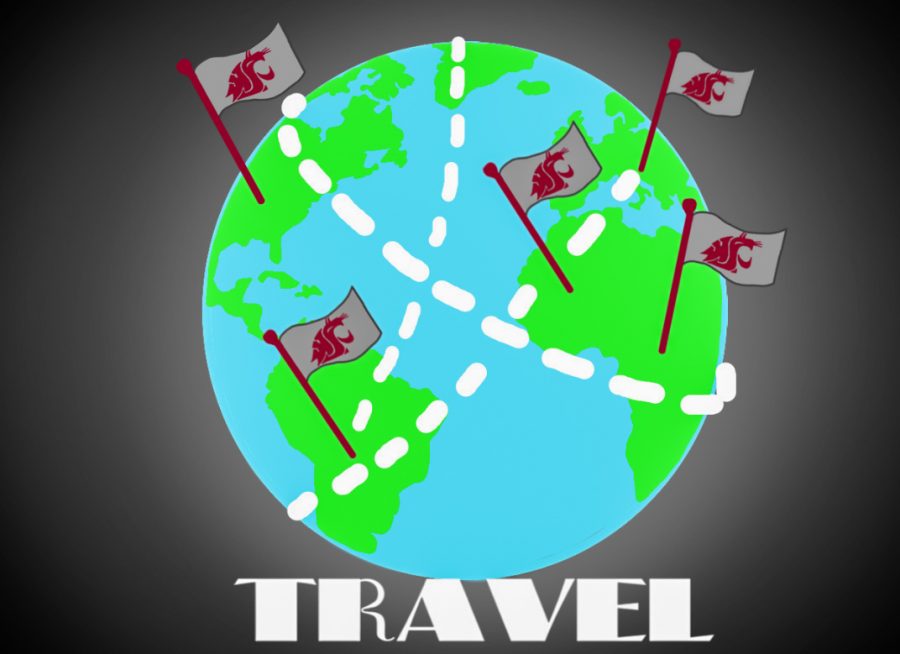Introduction to studying abroad
The process to study abroad can seem scary, complicated and expensive, but it’s really not
LAUREN PETTIT | DAILY EVERGREEN ILLUSTRATION
“Not all classrooms are with four walls. Studying abroad would be one of the greatest experiences you’d ever make in your life.”
March 11, 2020
For all the Cougs thinking about studying abroad, the upcoming week off could be the perfect time to make a travel plan.
Global learning advisor Jake Babb said the first step for students thinking about studying abroad is to attend a Global Cougs 101 session.
Various programs are on WSU’s study abroad website, Babb said, and include faculty-led trips and programs through different provider companies. Students can also research specific programs in their countries of interest through the study abroad website.
The four types of programs students can participate in are faculty-led, exchanges, provider programs and internships abroad.
Faculty-led programs give students an opportunity to interact with WSU faculty and are usually major-specific. They can range from 10 days to a semester in length.
Exchanges allow WSU students to attend a foreign institution. There are two categories, either involving direct exchange between two students or between a group of students.
Provider programs are third-party programs facilitated by various study abroad companies.
Internships are an opportunity for students to work in their field in an international setting.
“I think students just like relaxing and seeing what’s out there and searching at their leisure,” Babb said.
Babb said advisers help students determine what programs are best suited for their major and interests and can help answer questions about the study abroad applications.
Nam Nguyen, a senior studying international business, has been on 13 study abroad programs ranging in length from a couple weeks to a whole semester. He is also the first WSU student to travel to all seven continents doing study abroad.
Nguyen received around 50 different scholarships from WSU and other organizations that helped make his travels possible, he said. There are many scholarships available for low income or first-generation students.
“A lot of students when they think about studying abroad, the first thing that comes to mind is, ‘I probably can’t do this because it’s too expensive,’” Nguyen said. “Study abroad is actually for everyone.”
It is important to be prepared for anything that could go wrong while abroad, Nguyen said. He purchases travel insurance and refundable tickets and contacts his bank before traveling internationally.
Nguyen said he was invited to Italy to meet with Pope Francis to discuss environmentally friendly economic practices, but the meeting was postponed because of COVID-19.
Shane Johnson, external affairs manager for International Programs, said 71 WSU students have been pulled out of study abroad programs in Italy because it is designated a level 3 Travel Health Notice by the Centers for Disease Control Prevention.
Johnson said students who are planning to study abroad in the fall should wait until as close to the April 1 deadline as possible before booking or putting down a deposit.
International Programs is deciding whether students who have returned to the United States because of COVID-19 will be able to continue their semester online or get their money back on a case-by-case basis, he said.
The world is very unpredictable, Nguyen said, so it is important to prepare for different scenarios.
For all who plan to study abroad, staying informed of global situations and keeping in contact with the Office of International Programs is the way to have a unique and safe learning experience.
“Not all classrooms are with four walls,” Nguyen said. “Studying abroad would be one of the greatest experiences you’d ever make in your life.”










